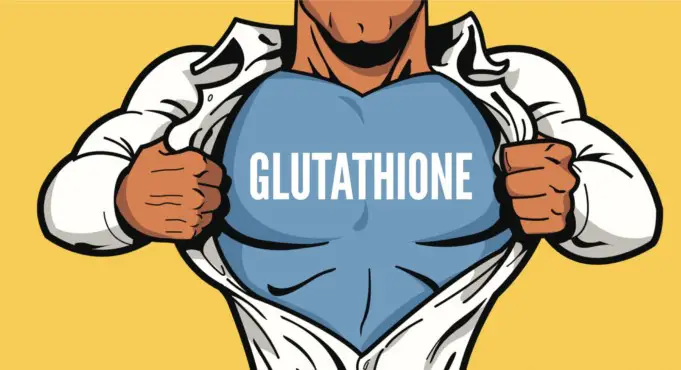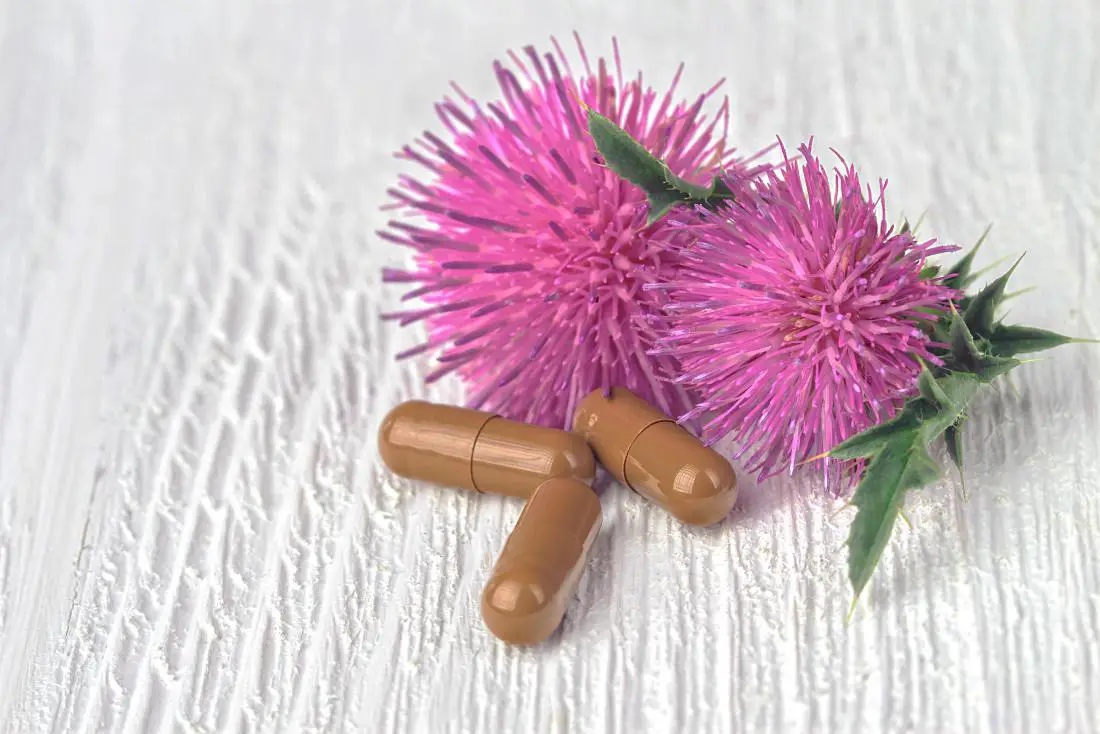Glutathione (also known as GSH) is an antioxidant, or a molecule found naturally in humans, plants, animals, fungi, and some bacteria and archaea.
Glutathione is produced in the human body by the liver, and its made up of three amino acids; glycine, cysteine, and L-glutamate. Glutathione prevents damages caused by reactive oxygen species ( radicals, lipid peroxides, and heavy metals ) to cells and cellular components.
Glutathione levels in the body may reduce due to external factors like environmental toxins, poor nutrition, and stress. Glutathione levels also decline with age.
In addition to being produced by the body naturally, glutathione can also be given or taken topically or as an inhalant. It is available as an oral supplement in both capsule and liquid forms.
Studies have shown that oral intake or ingestion of GSH may not be as sufficient as the natural intravenous delivery for some conditions and specific ailments. Glutathione stimulates the immune system, and its supplements also help treat and prevent a number of health conditions.
As an antioxidant, glutathione protects the cells by neutralizing or reducing reactive oxygen species. Studies have shown that glutathione deficiency can contribute to oxidative stress, which aids in the development of many diseases in the human body such as
- Asthma
- Atherosclerosis
- Alcoholism
- Alzheimer’s disease
- Chronic fatigue syndrome
- Colitis
- High cholesterol
- Lyme disease
- Osteoarthritis
- Cataracts
- Diabetes
- Glaucoma
- Heart disease
- Hepatitis, and many others.
In addition, glutathione is capable of slowing down the aging process. It also prevents cancer and preserves memory.
Currently, research on the use of glutathione supplements is limited, but available evidence shows that GSH offers certain benefits when taken in supplement form.
These benefits could be due to the fact that glutathione is digested into small amino acids in the form of L-cysteine, hence the vast availability of L-cysteine.
What are the health benefits of glutathione?
Reduces cell damage in nonalcoholic and alcoholic fatty liver disease
Antioxidants deficiency may trigger cell death in the liver; this means that a deficiency in glutathione and other antioxidants may cause the cells in the liver to die, and this may lead to fatty liver disease in those who misuse alcohol and those who don’t.
Glutathione improves bilirubin, enzyme, and protein levels in the blood people with both alcoholic and nonalcoholic chronic fatty liver diseases.
A study reported that glutathione was very effective when used on people with fatty liver disease intravenously and in high doses. The participants of the study were shown to have reduced levels of malondialdehyde, an indicator of cell damage in the liver
Another research also reported that orally administered glutathione has positive effects on people with nonalcoholic fatty liver disease due to proactive lifestyle changes. In this study, glutathione was administered in supplement form in a dose of 300 mg per day for 16 weeks.
Helps reduce the impact and symptoms of diabetes
Low amounts of glutathione may lead to long term high blood sugar levels. This may also lead to oxidative stress and tissue damage on its own.
A report stated that dietary supplementation with cysteine and glycine lowers oxidative stress and damage in people who have diabetes, despite high sugar levels, and it also boosts glutathione levels
Participants of the study were placed on 0.81 millimoles per kilogram (mmol/kg) of cysteine and 1.33 mmol/kg glycine every day for two weeks
Helps to combat respiratory diseases
Conditions such as asthma and cystic fibrosis are treated with a medication called N-acetylcysteine. As an inhalant, it reduces inflammation, and also helps to thin mucus, making it less paste-like. N-acetylcysteine is a byproduct of glutathione.
Glutathione may also be found in some foods, although the heating process during cooking and pasteurization diminishes its levels significantly. Its highest concentrations can be found in foods like
- Unpasteurized milk and certain unpasteurized dairy products
- Freshly-picked fruits and vegetables, such as avocado, and asparagus
- Raw or extremely rare meat.
Reduces oxidative damage in children with autism
A couple of research, including a clinical trial published in Medical Science Monitor, have indicated that children with autism have higher levels of oxidative damage and lower levels of glutathione in their brains than normal children.
The clinical trial on children aged 3 to 13 lasted eight weeks, and the oral or transdermal applications of glutathione were used. Changes in Autistic symptoms were not evaluated as part of the study.
Still, it was noted that children in both groups showed improvement in plasma sulfate, cysteine, and whole-blood glutathione levels.
Helps combat Parkinson’s disease
Parkinson’s disease is defined by symptoms such as tremors, and it affects the central nervous system. The condition currently has no cure. But a documented report says that intravenous glutathione has had positive effects on symptoms such as tremors and rigidity.
While it is still not clear whether glutathione eradicated the disease totally as more research is needed, this report suggests that glutathione may help combat and reduce its symptoms, thereby improving the quality of life in people with the disease.
helps Improve insulin resistance in people as they age
As individuals get older, the production of glutathione in their bodies reduces. A study carried out at Baylor School of Medicine used animal and human studies to explore the role of glutathione in weight management and insulin resistance in aging individuals.
The study’s findings showed that low GSH levels were a result of less fat burning and a higher fat-storing rate in the body.
Cysteine and glycine were added to the diets of older subjects to increase their GSH levels, which spiked within two weeks, thereby, improving insulin resistance and fat burning
Helps to fight cancer
Once a tumor is in place, high levels of glutathione may act to protect cancerous cells by granting resistance to chemotherapeutic drugs.
Side effects and risks
Any diet that’s rich in glutathione-boosting foods does not pose any risk at all. However, taking it via supplements may not be advisable for everyone.
Talk to your doctor about glutathione or get a pharmaceutical nod before you use it, and make sure to use it as prescribed (if you’re using following a doctor’s prescription).
Possible side effects may include:
- One might experience trouble breathing due to bronchial constriction
- Abdominal cramps
- Bloating
- Allergic reactions, like a rash (mostly if you’re allergic to some of its components)
Forms
Glutathione is rich in sulfur molecules, which is why foods high in sulfur help to boost its production in the body. Some of these foods include:
- Cruciferous vegetables, such as cauliflower, broccoli, bok Chou, and Brussels sprouts
- Allium vegetables, such as onions and garlic
- Nuts
- Eggs
- Legumes
- Lean protein, such as chicken, and fish
Other foods and herbs that facilitate the natural production of GSH in the body include:
- Milk thistle
- Flaxseed
- Whey
- Guso seaweed
Insomnia also negatively affects the levels of glutathione in the body. Getting enough sleep on a regular basis can help boost levels.
Preparation and doses
there is no sufficient scientific evidence to determine the proper dosage for a GSH supplement, and some suggest that GSH supplements may be more effective when combined with NAC.
Several doses have been studied in research in relation to specific medical conditions. The right dose for you may depend on several factors, including your gender, age, and medical history.
In some cases, medical practitioners administer glutathione through the use of an IV. When administered intravenously, GSH is typically used in the treatment of conditions like atherosclerosis, diabetes, and Parkinson’s disease.
Also, giving glutathione through an IV is sometimes used to treat the side effects of hemodialysis treatment, chemotherapy, and bypass surgery.
Bottom line
Glutathione is a potent antioxidant that’s produced in the body’s cells. Its levels decrease as a result of stress, aging, and toxin exposure. Boosting your glutathione levels may provide many health benefits, including lowering of oxidative stress.













